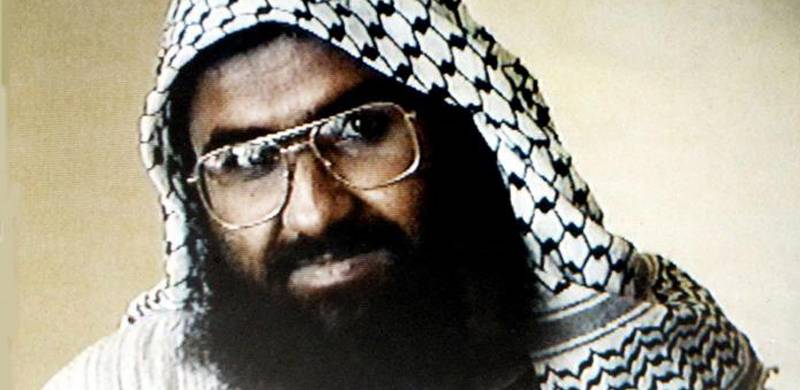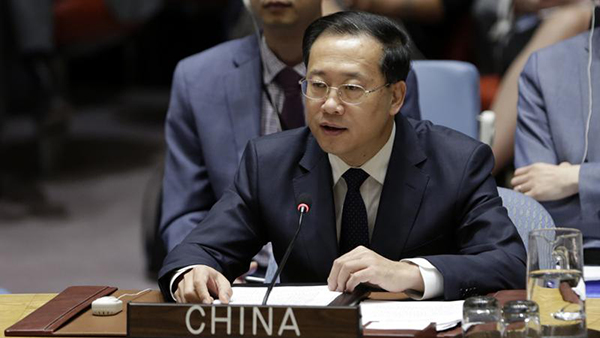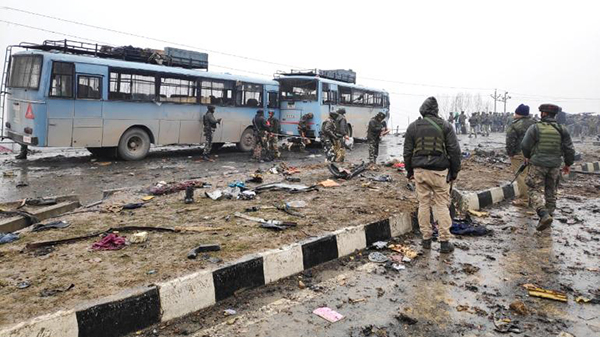
In this article, Ejaz Hussain tries to figure out why China blocked the move to blacklist Maulana Masood Azhar and Jaish-e-Mohammed at UN Security Council.
In the wake of the ongoing India-Pakistan tussle, the United Nations Security Council (UNSC) was urged, initially by France and later supported by both the United States and England, to declare Mr Masood Azhar, the leader of the banned Jaish-e-Muhammad (JeM), as a global terrorist thus blacklisting him along with JeM with respect to international travel and global transactions. Similar attempts were made by the UNSC a couple of years ago too.
However, replicating the past episodes, the People’s Republic of China, considered as Pakistan’s time-tested friend, blocked the pro-India resolution tabled before the 1267 Sanctions Committee on purely technical grounds.
It seems the Chinese government is not impressed by the empirical standards of the proposed resolution that, sans verifiable data, aimed at maligning Pakistan in the context of Pulwama attack on Indian law enforcement officials.

The JeM was believed to be behind the attack as per certain media reports whose authenticity is still to be established. Thus, India must present solid proofs to the UN body and the international community in general in order to get this JeM banned globally.
Perhaps this will be a herculean task given the reports of heavy explosives being used by the Kashmiri youth who committed a suicide attack on the Indian security forces that, over the decades, have been systematically committing genocide of the local Kashmiri population.
https://www.youtube.com/watch?v=6VkU8c62YFU&t=1s
Nevertheless, Pakistan ought to take the proposed resolution seriously as it is the third time such a high-level diplomatic initiative was taken by leading global powers except China that are closer to India than Pakistan. What Pakistani government needs to keep in mind is the fact that its closer ally, China, has, in 2017, bracketed JeM, among others, as a potential threat to regional and global peace.
The BRICS Declaration (2017) read, “We, in this regard, express concern on the security situation in the region and violence caused by the Taliban, (Islamic State), al-Qaeda and its affiliates including Eastern Turkistan Islamic Movement (ETIM), Islamic Movement of Uzbekistan, the Haqqani network, Lashkar-e-Taiba, Jaish-e-Mohammad, TTP and Hizb ut-Tahrir”.
The BRICS leadership including India and China further condemned “unilateral military interventions, economic sanctions and arbitrary use of unilateral coercive measures in violation of international law and universally recognised norms of international relations. We emphasise that no country should enhance its security at the expense of the security of others.”

What the foregoing posits is that China has taken a principled position on (extra) regional terrorism and it shall abide by the international law, global norms and the BRICS commitments in this respect. However, it is also China’s policy to discourage the proposition and initiation of bilateral disputes to regional forums such as the BRICS and/or the SCO. Thus, as per its conational foreign policy approach, China is very likely to dissuade both India and Pakistan to escalate conflict and, importantly, to resolve their conflict bilaterally.
Moreover, at the international forum such as the UN, the Chinese government traditionally looks up at the issue agenda as per the rules of the game. Which means if the matter of Masood Azhar is presented with undeniable evidences, only then Beijing is expected to exercise its due right in terms of being part of the UN community to term JeM as a global terrorist organisation to be treated accordingly. Less than that, China is very likely to either block such moves or choose to be counted as absentee.
Finally, given the hue and cry related to JeM and similar organisations regionally and globally, it is in Pakistan’s own interest to take due measures to satisfy the regional and international community.
The latter should also take Pakistan’s perspective into account. After all Pakistan is a crucial regional player, critically needed to make durable peace in Afghanistan as well as in the South Asian region.
In the wake of the ongoing India-Pakistan tussle, the United Nations Security Council (UNSC) was urged, initially by France and later supported by both the United States and England, to declare Mr Masood Azhar, the leader of the banned Jaish-e-Muhammad (JeM), as a global terrorist thus blacklisting him along with JeM with respect to international travel and global transactions. Similar attempts were made by the UNSC a couple of years ago too.
However, replicating the past episodes, the People’s Republic of China, considered as Pakistan’s time-tested friend, blocked the pro-India resolution tabled before the 1267 Sanctions Committee on purely technical grounds.
It seems the Chinese government is not impressed by the empirical standards of the proposed resolution that, sans verifiable data, aimed at maligning Pakistan in the context of Pulwama attack on Indian law enforcement officials.

The JeM was believed to be behind the attack as per certain media reports whose authenticity is still to be established. Thus, India must present solid proofs to the UN body and the international community in general in order to get this JeM banned globally.
Perhaps this will be a herculean task given the reports of heavy explosives being used by the Kashmiri youth who committed a suicide attack on the Indian security forces that, over the decades, have been systematically committing genocide of the local Kashmiri population.
https://www.youtube.com/watch?v=6VkU8c62YFU&t=1s
Nevertheless, Pakistan ought to take the proposed resolution seriously as it is the third time such a high-level diplomatic initiative was taken by leading global powers except China that are closer to India than Pakistan. What Pakistani government needs to keep in mind is the fact that its closer ally, China, has, in 2017, bracketed JeM, among others, as a potential threat to regional and global peace.
The BRICS Declaration (2017) read, “We, in this regard, express concern on the security situation in the region and violence caused by the Taliban, (Islamic State), al-Qaeda and its affiliates including Eastern Turkistan Islamic Movement (ETIM), Islamic Movement of Uzbekistan, the Haqqani network, Lashkar-e-Taiba, Jaish-e-Mohammad, TTP and Hizb ut-Tahrir”.
The BRICS leadership including India and China further condemned “unilateral military interventions, economic sanctions and arbitrary use of unilateral coercive measures in violation of international law and universally recognised norms of international relations. We emphasise that no country should enhance its security at the expense of the security of others.”

What the foregoing posits is that China has taken a principled position on (extra) regional terrorism and it shall abide by the international law, global norms and the BRICS commitments in this respect. However, it is also China’s policy to discourage the proposition and initiation of bilateral disputes to regional forums such as the BRICS and/or the SCO. Thus, as per its conational foreign policy approach, China is very likely to dissuade both India and Pakistan to escalate conflict and, importantly, to resolve their conflict bilaterally.
Moreover, at the international forum such as the UN, the Chinese government traditionally looks up at the issue agenda as per the rules of the game. Which means if the matter of Masood Azhar is presented with undeniable evidences, only then Beijing is expected to exercise its due right in terms of being part of the UN community to term JeM as a global terrorist organisation to be treated accordingly. Less than that, China is very likely to either block such moves or choose to be counted as absentee.
Finally, given the hue and cry related to JeM and similar organisations regionally and globally, it is in Pakistan’s own interest to take due measures to satisfy the regional and international community.
The latter should also take Pakistan’s perspective into account. After all Pakistan is a crucial regional player, critically needed to make durable peace in Afghanistan as well as in the South Asian region.
